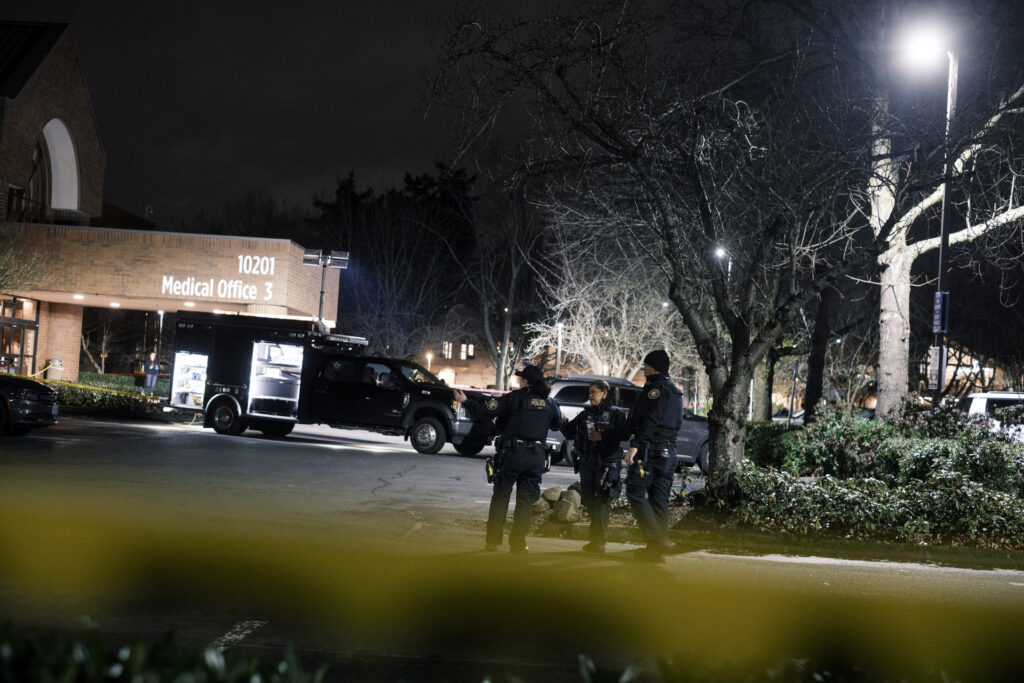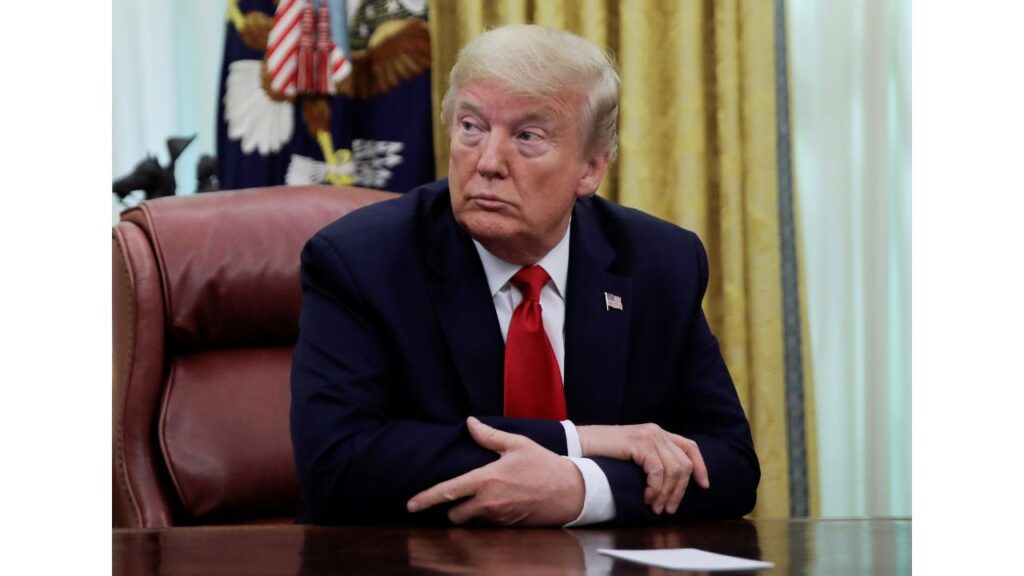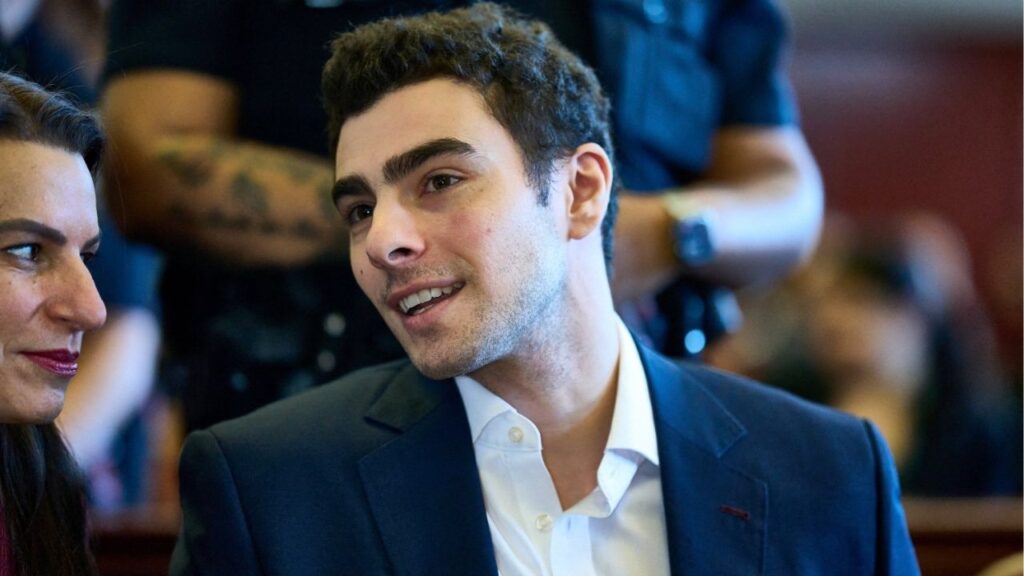President-elect Masoud Pezeshkian of Iran, center, prepares to greet supporters at the tomb of Ayatollah Ruhollah Khomeini in Tehran on Saturday, July 6, 2024. In an election upset, Pezeshkian, the reformist candidate who advocated moderate policies at home and improved relations with the West, won the presidential runoff against a hard-line rival, according to results released by the interior ministry on Saturday. (Arash Khamooshi/The New York Times)

- Masoud Pezeshkian, the reformist candidate, won Iran's presidential runoff with 16.3 million votes.
- Voter turnout surged to 50%, up from a record-low in the first round.
- Pezeshkian aims to lift sanctions and improve relations with the West.
Share
|
Getting your Trinity Audio player ready...
|
In an election upset in Iran, the reformist candidate who advocated moderate policies at home and improved relations with the West won the presidential runoff against a hard-line rival, according to results released by the Interior Ministry on Saturday.
Pezeshkian Won By Near 3 Million Votes
The winner, Masoud Pezeshkian, a 69-year-old cardiac surgeon, got 16.3 million votes to defeat Saeed Jalili with 13.5 million votes. It was a blow to the conservative faction in Iran’s ruling establishment and a major victory for the relatively moderate reformist camp, which had been sidelined from politics for the past few years.
After polls closed at midnight, turnout stood at about 50%, roughly 10 percentage points higher than in the first round, with about 30.5 million ballots cast, according to the Interior Ministry.
Related Story: Iran Holds Runoff Presidential Vote Pitting Hard-Liner Against Reformist After ...
First Round Had Record-Low Turnout
The first round had a record-low turnout, as many Iranians boycotted in protest. But the prospect of a hard-line administration that would double down on strict social rules, including enforcing mandatory hijabs for women, and remain defiant in negotiations to lift international economic sanctions apparently spurred Iranians to turn out.
“The difficult path ahead will not be smooth except with your companionship, compassion and trust,” Pezeshkian wrote on social media after his win. In another post, he thanked the young people “who came to work lovingly and sincerely for Iran” and “shined a ray of hope and confidence in the future.”

Pezeshkian said during the campaign that he recognized fixing the economy was inextricably linked to foreign policy — namely, the standoff with the West over the nuclear program — and would negotiate to lift sanctions.
Related Story: Iran Votes in Snap Poll for New President After Hard-Liner’s Death Amid ...
Pezeshkian Wants Peace with the West
He has said he opposes the mandatory hijab law and wants peaceful relations with the West. But when it comes to Iran’s animosity toward Israel, that is a matter of state policy set at the highest levels, from which the incoming president is unlikely to diverge.
While Iran’s supreme leader, Ayatollah Ali Khamenei, wields the most power in government, analysts said the incoming president will set domestic policy and influence the shape of foreign policies.
“A reform-minded president, despite all the limitations and failures of the past, is still meaningfully better; in some significant way, it would put some constraint on the authoritarianism of the Islamic Republic,” said Nader Hashemi, a professor of Middle Eastern studies at George Washington University.
Related Story: Ahead of Election, Iranian Voters Say, ‘We Have Been Going Backward’
Pezeshkian’s Supports Celebrate in the Streets
Pezeshkian’s supporters took to the streets before dawn Saturday, honking horns, dancing and cheering outside his campaign offices in many cities, including his hometown, Tabriz, after he was announced the winner. On social media, they congratulated Iranians for turning up at polls to “save Iran,” a campaign slogan of Pezeshkian’s.
“The end of the rule of minority over majority,” said Ali Akbar Behmanesh, a reformist politician and head of Pezeshkian’s campaign in the province of Mazandaran. “Congratulations for the victory of wisdom over ignorance,” he added in a post on the social platform X.

Some conservative supporters of Jalili said on social media that regardless of who won, the turnout was a victory for the Islamic Republic, and they hoped the new administration would work to bridge divisions among political factions.
“Once again, the great will of the Iranians was manifested and embarrassed the enemies of the revolution, the system and the Islamic homeland, and especially the evil efforts and planning of the Western Zionist media empire,” Khamenei said in a statement congratulating the winner. He called for the country to pull together for the sake of prosperity.
Election Held Due to Passing of President Raisi
The special election was held because President Ebrahim Raisi was killed in a helicopter crash in May. Pezeshkian’s new term will last four years.
Elections in Iran are not free or fair by Western standards, and the selection of candidates is tightly vetted by the Guardian Council, an appointed committee of 12, with six clerics and six jurists. But the government has long viewed voter turnout as a sign of legitimacy.
The two candidates in the runoff, from opposite ends of Iran’s constrained political spectrum, represented different visions for Iran, with consequences for domestic and regional politics.
In the days before the election, Pezeshkian’s campaign rallies attracted larger and younger crowds. Prominent politicians like Mohammad Javad Zarif, a former foreign minister, campaigned for him and said the choice was between “day and night.”
Voters Turned Out in Fear of Jalili
The message that voters should turn up out of fear of Jalili appeared to have resonated.
“I’m going to vote, because if I don’t vote, the Islamic Republic won’t be toppled, but it will help elect a hard-line president that I do not accept,” Ghazal, a 24-year-old fashion designer in Tehran, the capital, said in a telephone interview. Like others interviewed, she asked to be identified only by her first name for fear of drawing the government’s attention.
Sedigheh, a 41-year-old pediatrician in Tehran, also abandoned her boycott and voted for Pezeshkian on Friday, even though she said by telephone that she had no hope that any president could bring about the meaningful changes that people demanded.
“I voted because I think we need small and incremental changes that make our lives a little better,” she said, “and if there is a president who can or wants to make those small changes, it’s enough for now.”
Pezeshkian, a Veteran, Served in Parliament for 16 Years
A veteran of the Iran-Iraq War, Pezeshkian served in parliament for 16 years, including a stint as deputy parliament speaker, and as health minister for four years. After his wife died in a car accident, he raised his children as a single father and has never remarried, which is somewhat unusual in Iran. That, and his identity as an Azeri, one of Iran’s ethnic minorities, endeared him to many voters. He campaigned with his adult daughter by his side at every rally and major speech.
Pezeshkian promised to work with his rivals to solve Iran’s many challenges.
Jalili campaigned on the message that he would safeguard revolutionary ideals and remain defiant against challenges like sanctions and nuclear negotiations. He congratulated the victor Saturday, saying he wanted to help the government address the country’s problems.
In the days before the vote, prominent politicians and clerics called Jalili “delusional,” compared him to the Taliban in Afghanistan and warned that his presidency would put the country on a collision course with the United States and Israel.
Reformists Revel in Political Movement Boost
Reformists in Iran said that Pezeshkian’s election campaign was a boost for their political movement, which many inside and outside the country had written off after being marginalized in parliamentary elections and the last presidential election, in 2021. That year, competitive candidates were disqualified, while those who remained faced a disillusioned electorate.
Many Iranians have called for an end to authoritarian clerical rule in waves of protests, including a 2022 uprising led by women in which crowds chanted, “Conservatives, reformists, the game is over.”

The government brutally cracked down on the dissent, killing more than 500 people and arresting tens of thousands during that latest uprising. The widespread anger and loss of hope were reflected in the fact that half of eligible voters, about 61 million, sat out this election, saying that a vote for the government would be a betrayal of all victims.
Mahsa, a 34-year-old accountant in Isfahan, said by telephone that she refused to vote and was not buying the logic that she had to pick between “bad and worse.”
“I see this election as government propaganda — a kind of ridiculous mask behind which everything is controlled by a dictator,” she added.
–
This article originally appeared in The New York Times.
By Farnaz Fassihi/Arash Khamooshi
c.2024 The New York Times Company
RELATED TOPICS:
Categories

Google Guys Say Bye to California


















